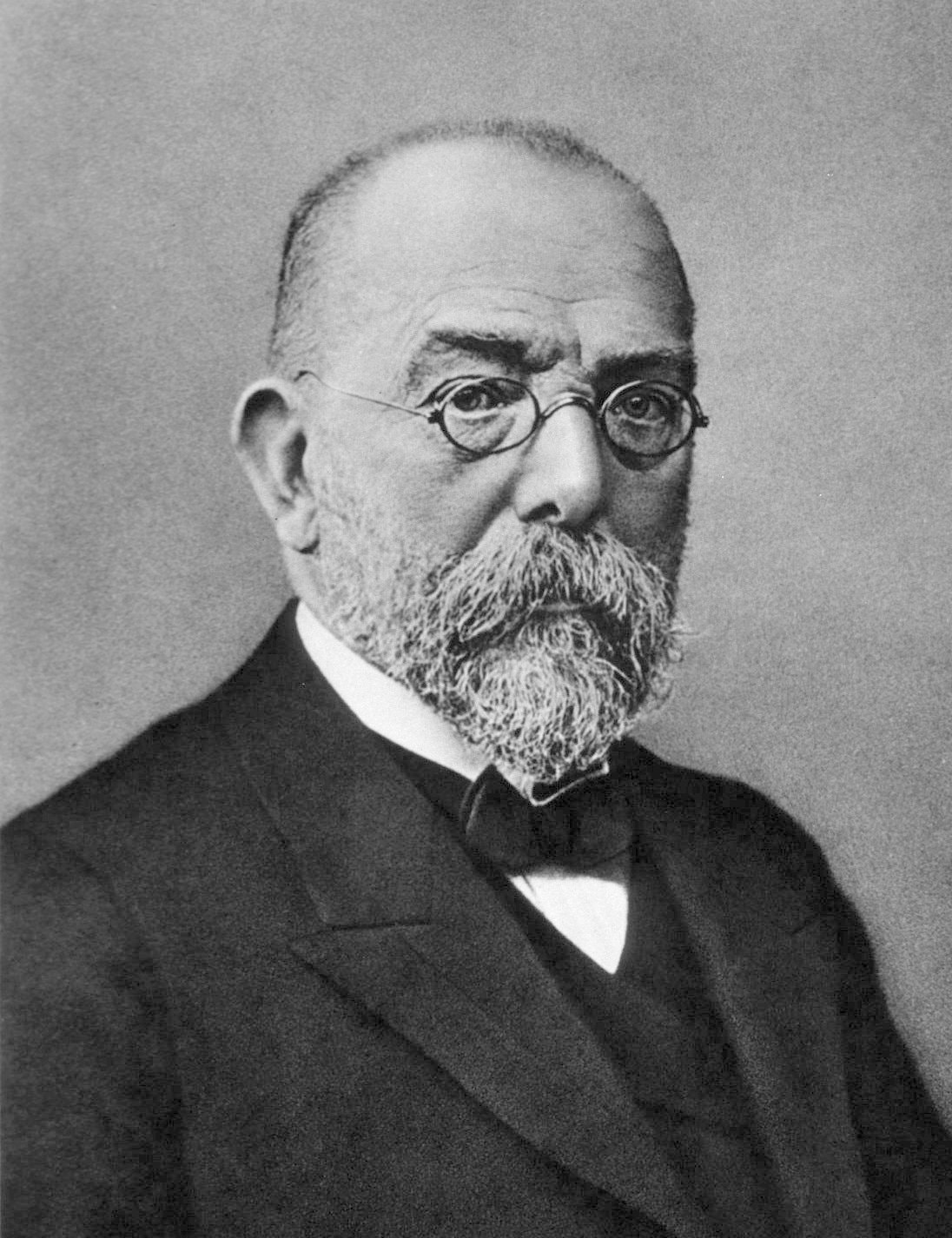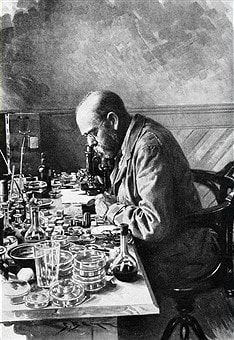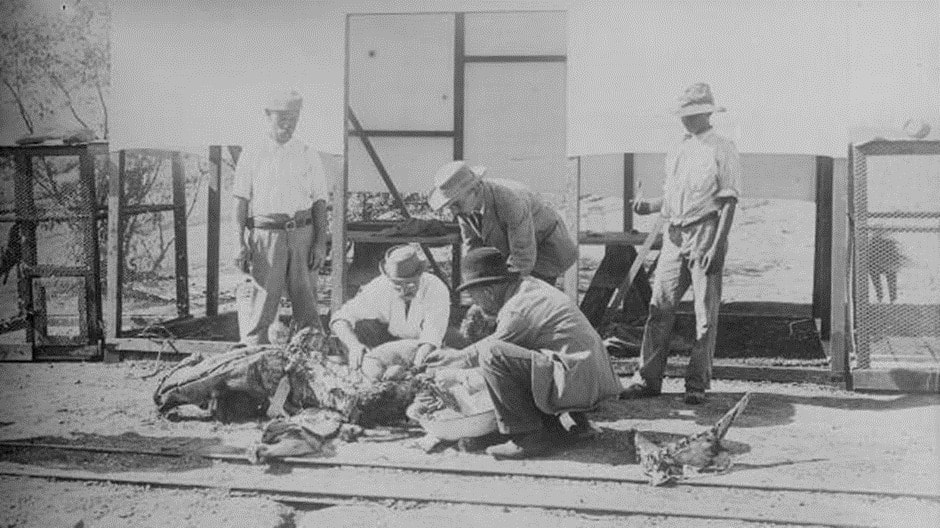Today in Kimberley's History
|
|
|
|
49 days since beginning of the Siege of Kimberley, 1899
Extract from "The Diary of a Doctor's Wife – During the Siege of Kimberley October 1899 to February 1900" by Winifred Heberden.
At a very early hour all our Mounted Men with the Ambulance turned out for the purpose of making a fort some distance beyond the Reservoir. They were formed into vedettes to protect the natives who worked at the fort and trenches under direction of the officers. Our guns fired into the Boers but drew no reply; and towards breakfast time when the work was finished, a waggon was seen to be coming in hot haste from the direction of the Intermediate Station, supposed to be full of ammunition, as the Boers opened fire just as our men reached Kimberley again. It being a very still day to-day the gun-fire from the Relief Column was distinctly heard. There was a continuous boom for a long time.
Extract from "The Diary of a Doctor's Wife – During the Siege of Kimberley October 1899 to February 1900" by Winifred Heberden.
At a very early hour all our Mounted Men with the Ambulance turned out for the purpose of making a fort some distance beyond the Reservoir. They were formed into vedettes to protect the natives who worked at the fort and trenches under direction of the officers. Our guns fired into the Boers but drew no reply; and towards breakfast time when the work was finished, a waggon was seen to be coming in hot haste from the direction of the Intermediate Station, supposed to be full of ammunition, as the Boers opened fire just as our men reached Kimberley again. It being a very still day to-day the gun-fire from the Relief Column was distinctly heard. There was a continuous boom for a long time.
Robert Koch spends 4 months in Kimberley identifying that Rinderpest is caused by a non-bacterial microbial agent (later shown to be a virus)
Kimberley is often described as a 'city of firsts', but this little known 'first' is rarely cited. In 1896 and early 1897, the mysterious rinderpest disease decimated the cattle population of most of southern Africa north of the Orange River, as well as decimating herds of game animals such as eland and buffalo. The outbreak of rinderpest in the Taung region in what is now the North West Province just north of Kimberley, in late November 1896 was largely responsible for exacerbating the Langeberg uprising of 1896-7. The movement of people and animals in the Kimberley region was brought to a virtual standstill in order to curb the spread of the killer disease, having already reached Kimberley by October 1896.
In late 1896 Robert Koch came to work in South Africa and on December 3rd he left for Kimberley. "Accompanied by his wife and staff surgeon Paul Kohlstock, Koch soon assembled a menagerie of experimental animals and with in four months found that the infective agent of rinderpest was nonbacterial, transmissible by infected blood, and unattenuated by passage through animals. He achieved active immunization by inoculating susceptible cattle with a mixture of blood serum from recovered animals and virulent rinderpest-infected blood. Inoculation with bile from cattle freshly dead of the disease was even more protective." (www.encyclopedia.com/doc/1G2-2830902344.html).
Robert Koch, (born Dec. 11, 1843, Hannover — died May 27, 1910, Baden-Baden, in Germany.) was a German physician and one of the founders of bacteriology. He discovered the anthrax disease cycle (1876) and the bacteria responsible for tuberculosis (1882) and cholera (1883). For his discoveries in regard to tuberculosis, he received the Nobel Prize for Physiology or Medicine in 1905.
Kimberley is often described as a 'city of firsts', but this little known 'first' is rarely cited. In 1896 and early 1897, the mysterious rinderpest disease decimated the cattle population of most of southern Africa north of the Orange River, as well as decimating herds of game animals such as eland and buffalo. The outbreak of rinderpest in the Taung region in what is now the North West Province just north of Kimberley, in late November 1896 was largely responsible for exacerbating the Langeberg uprising of 1896-7. The movement of people and animals in the Kimberley region was brought to a virtual standstill in order to curb the spread of the killer disease, having already reached Kimberley by October 1896.
In late 1896 Robert Koch came to work in South Africa and on December 3rd he left for Kimberley. "Accompanied by his wife and staff surgeon Paul Kohlstock, Koch soon assembled a menagerie of experimental animals and with in four months found that the infective agent of rinderpest was nonbacterial, transmissible by infected blood, and unattenuated by passage through animals. He achieved active immunization by inoculating susceptible cattle with a mixture of blood serum from recovered animals and virulent rinderpest-infected blood. Inoculation with bile from cattle freshly dead of the disease was even more protective." (www.encyclopedia.com/doc/1G2-2830902344.html).
Robert Koch, (born Dec. 11, 1843, Hannover — died May 27, 1910, Baden-Baden, in Germany.) was a German physician and one of the founders of bacteriology. He discovered the anthrax disease cycle (1876) and the bacteria responsible for tuberculosis (1882) and cholera (1883). For his discoveries in regard to tuberculosis, he received the Nobel Prize for Physiology or Medicine in 1905.



